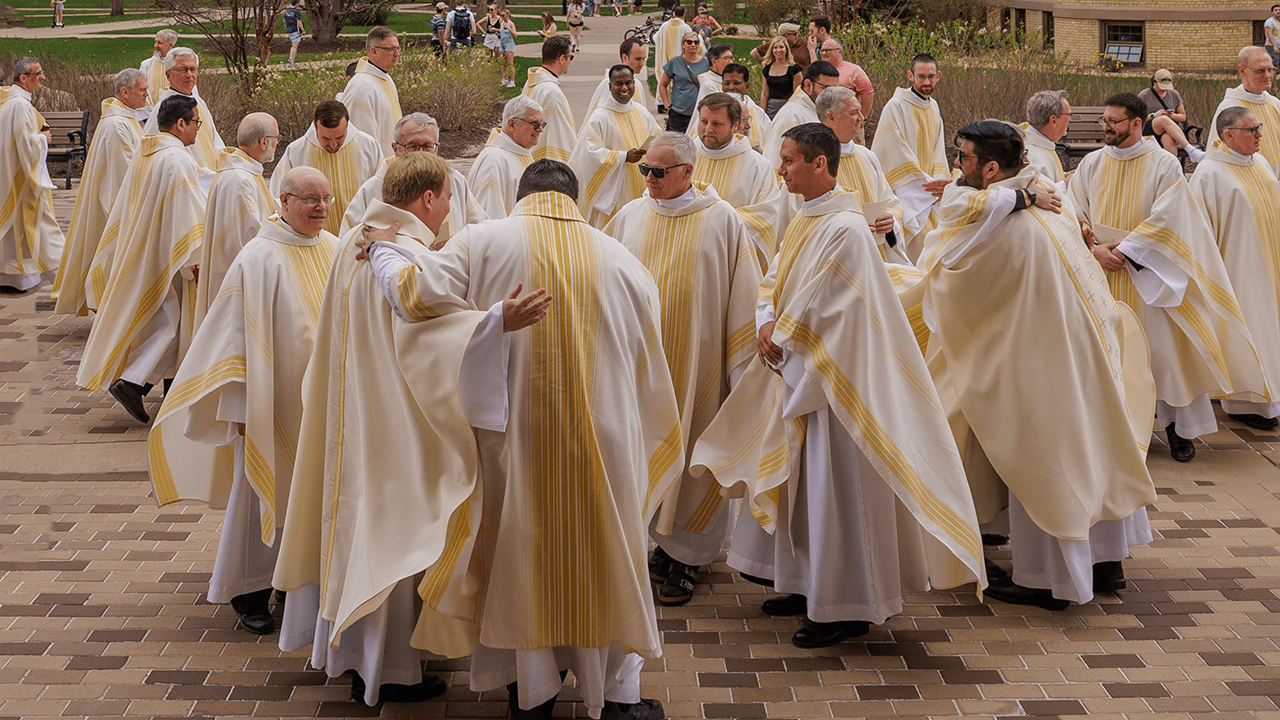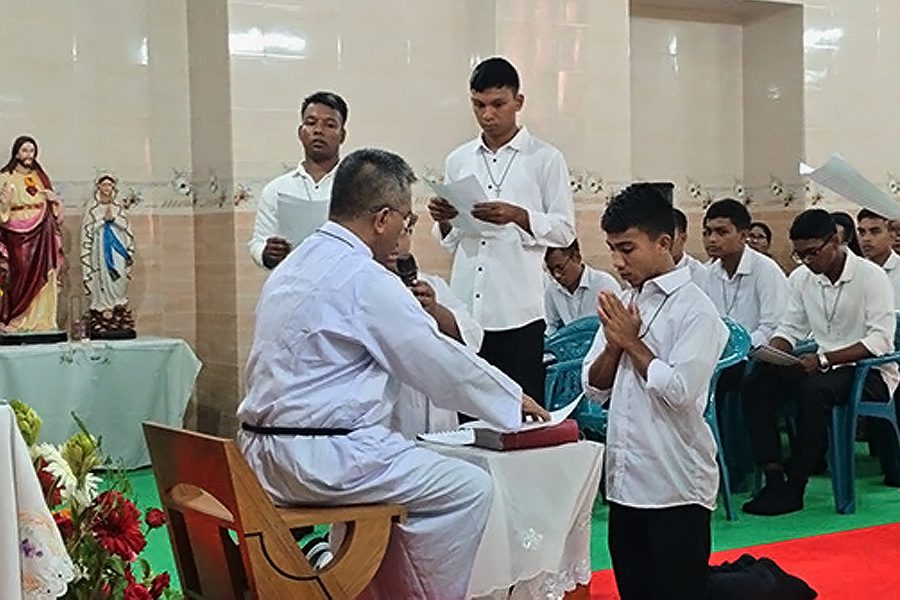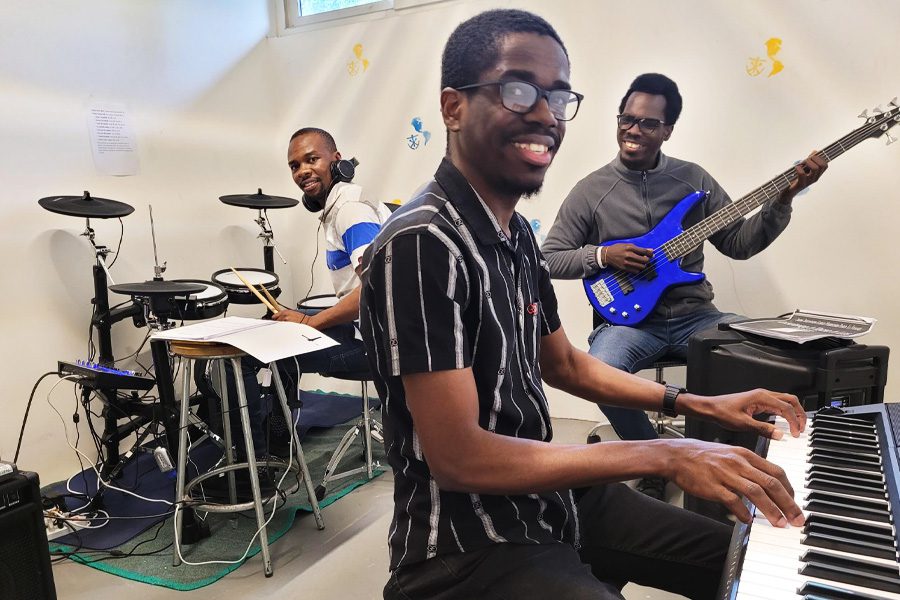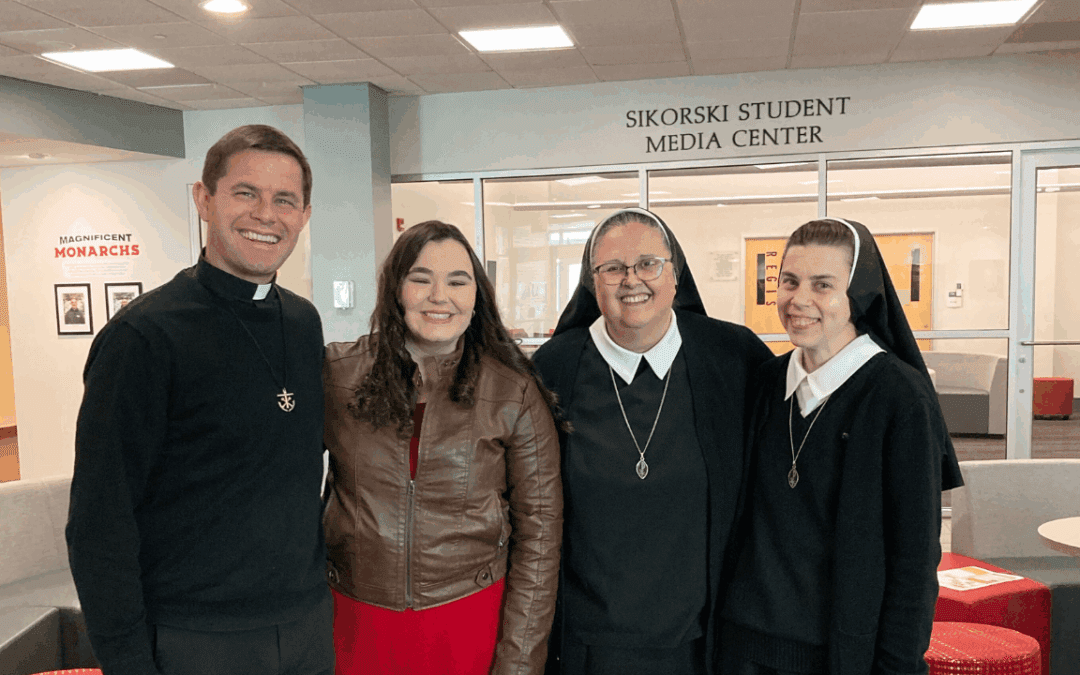One day a couple of weeks ago, I wandered into the common social area of our Holy Cross Court to find Fr. Richard Rutherford, one of our retired religious, stacking and counting plates on our kitchenette countertop, as if he were taking an inventory. “Are you planning something for Thanksgiving?” I asked. “No,” he replied, “A couple of us have made a proposal to the local superior that we switch from disposable plates at our socials, and I want to see if we have enough permanent ones to serve our needs.”
Just last week, I was sharing our common laundry room with Deacon Tyler Kreipke, one of our newest community members. Before his clothes had finished washing, he had to depart to lead Adoration at our campus Chapel of Christ the Teacher. To start my own wash load, I moved his clothes to the dryer, and, not knowing what temperature he preferred, I chose the gentlest setting. When he returned, I let him know what I had done, and he responded, “Oh, thanks. That was really thoughtful. But I usually try not to use the dryers for my clothes at all.”
Fr. Richard and Deacon Tyler are two members of the US Province’s Laudato Si committee, which helps to guide our community to reflect on and live out the Church’s vision of stewardship for the earth. These two religious are about 50 years apart in age. They have very different academic backgrounds: Fr. Richard is a theologian in sacramental theology; Deacon Tyler is a biomechanical engineer. Yet they bring these different perspectives to our common religious life to help lead our community on a social, moral issue for which they both have passion and commitment.
In a religious community, we are blessed by the many ways in which we complement one another. In our larger religious communities, a span of 50 or even 60 years in age is not at all uncommon — a span which yields quite a variety in our lived experience, in our grasp of tradition and institutional memory, in our connections with the lives of the students, faculty, and parishioners to whom we minister. We also bring a remarkable diversity in background and expertise. Many of our communities, like ours at UP, include members from Provinces in Asia or Africa or Latin America. We C.S.C.’s who serve on the faculty have degrees in almost every major discipline across the University.
Contemporary society in America is, unfortunately, increasingly marked by various forms of isolation. Families tend less frequently to practice the inter-generational living so common in by-gone eras, so elders and youth have fewer opportunities for daily, in-person, mutual enrichment. Our forms of entertainment and media allow us to cultivate the proverbial “silos” or “echo chambers” that re-enforce our tastes and biases.
Religious life provides at least some protection from these twenty-first century problems. Now certainly, interactions among members of very different ages, backgrounds, and perspectives can, at times, create some friction and frustrations. But, far more important, these very tangible differences allow us to embody, on a local level, the unity in diversity that is a hallmark of a truly Catholic Church.
Published on December 6, 2023




